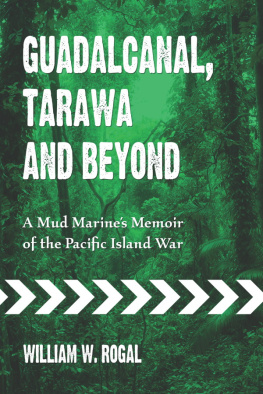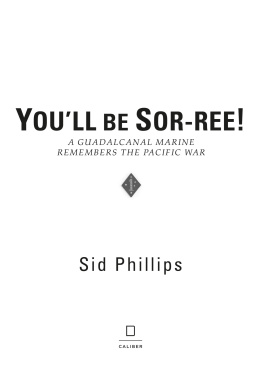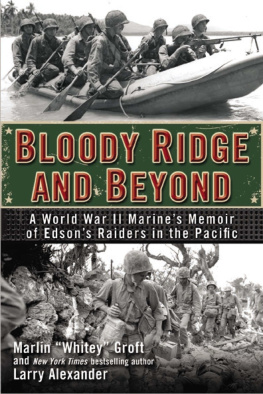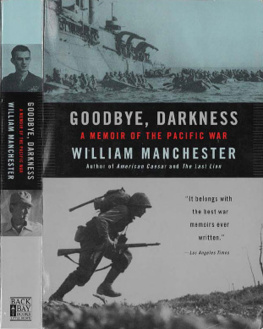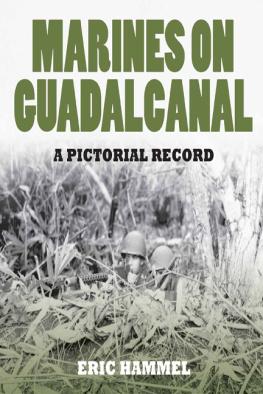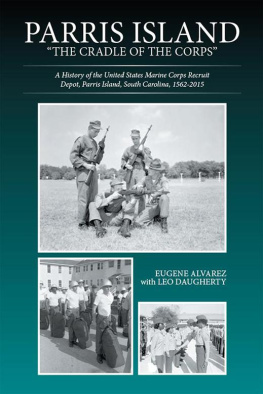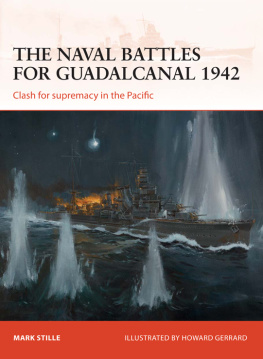
Table of Contents
Guadalcanal, Tarawa
and Beyond
A Mud Marines Memoir of
the Pacic Island War
WILLIAM W. ROGAL
McFarland & Company, Inc., Publishers
Jefferson, North Carolina, and London
Sergeant William W. Rogal in June 1945.
LIBRARY OF CONGRESS CATALOGUING-IN-PUBLICATION DATA
Rogal, William W., 1922
Guadalcanal, Tarawa and beyond : a mud Marines memoir of the Pacic island war / by William W. Rogal.
p. cm.
Includes index.
ISBN 978-0-7864-4671-1
1.Rogal, William W., 19222.World War, 19391945Personal narratives, American.3.United States. Marine Corps. Marines, 2nd. Battalion, 1st. Company A.4.World War, 19391945 CampaignsPacic Area.5.United States. Marine CorpsBiography.6.MarinesUnited StatesBiography.I. Title.
D769.3722nd.R64 2010
940.54'5973092dc22[B] 2010018587
British Library cataloguing data are available
2010 William W. Rogal. All rights reserved
No part of this book may be reproduced or transmitted in any form or by any means, electronic or mechanical, including photocopying or recording, or by any information storage and retrieval system, without permission in writing from the publisher.
Cover image 2010 Shutterstock
McFarland & Company, Inc., Publishers
Box 611, Jefferson, North Carolina 28640
www.mcfarlandpub.com
Preface
It is said that all returning veterans have stories to tell, some of them true. I can agree with that adage for I have heard and read wartime accounts which are really wrong, some deliberately so. I have bent over backward to avoid that result in this work and have sincerely tried to hold hyperbole to the barest minimum.
Why write a memoir? I really dont know for sure. In about 1973 when I was a partner in a law firm, Dow, Lohnes and Albertson, one of the associate lawyers, Patrick H. (Pat) Allen, insisted on several occasions that I should write up my Marine Corps experiences in World War II. I dont recall ever telling any tales to Pat. He knew only that I had fought in the Pacific. In retrospect it seems strange that Pat was so insistent that I write a memoir. Perhaps it was his young agehe must have been a small child when the war was fought.
More recently, going back at least ten years, cousin Roy Miltner, my nephew Mike Nifong and my golfing buddies Jack Boag and Frank Reinhard encouraged me to jot something down. They seemed to have a genuine interest in my war stories and urged me to write them down. Also, early on, Brigadier General Ed Simmons, then the head of the Marine Corps History operation and my good friend, and writer and war correspondent Bob Sherrod assured me that my recollections would be useful to future historians. And, I suppose, there is an egocentric element involved, the desire to change the fact that no one in my family had any knowledge as to how I spent six eventful years on Uncle Sams payroll. And it is kind of comforting to think that writing this gives my life a measure of permanence.
Which brings me to confess that contributing to my thinking was a sense of resentment that the Second Marine Divisions contributions to the victory at Guadalcanal have been given rather short shrift in many of the histories and other writings about the battle. The facts that my regiment was attached to the First Division and made D-Day landings on Florida Island before the H-Hour landings on Tulagi and Guadalcanal have been underplayed or ignored by many chroniclers. The fact that my division lost almost 300 killed in action and more than 900 wounded illustrates that we spent some time in combat on that island.
But this work would never have found its way to print without the encouragement and assistance of good friend and noted historian and writer William Bartsch. It was he who insisted I should clean up the draft I had sent him and try for publication. But that was only the start of his assistance. Throughout my efforts to produce a printable manuscript he has tirelessly contributed advice and needed historical facts, photos and maps.
Another great source of encouragement and assistance was my friend retired U.S. Army Col. Harry Contos. He was constantly on call to aid in production. He made dozens of trips to my house to unravel the knots produced by my inability to master my computers word processor.
And, of course, Pearl Rogal, the woman I married in 1945, deserves kudos for her patience and forbearance during the many hours I spent secluded away in my den. She has cheerfully borne the isolation forced by my absorption and always urged me to continue and not get discouraged.
1
Joining the Marines
It is tempting to write that I opted for military service that summer of 1940 because I knew war was coming and I wanted to do my part, but that would be far from the truth. While I was vaguely aware the war in Europe had commenced with Hitlers invasion of Poland in September of 1939 it did not occur to me that the United States would get involved. In short, patriotism had nothing to do with my decision to enlist in the Marines. In the first place, I was not college material. I lacked the desire and discipline to buckle down and study and I abhorred the thought of doing so for another four years. I had coasted through high school and barely passed enough subjects to achieve graduation. I believe the factor which contributed the most to my miserable high school academic record was, strangely, learning to read at an early age. I am not certain exactly how it came about but I could read fairly well before I entered first grade. I vaguely recall lying on the floor trying to read the comics and asking any nearby adult to help. When they passed out the readers on my first day in school I read the book through while they were still being distributed. During my first five or six years in school I read everything I could lay my hands on. I even went through a single-volume encyclopedia during my third school year. This reading ability enabled me to coast through my first six years of school, getting excellent grades without expending very much effort. In short, I did not learn to study and, when faced with the more difficult high school subjects that demanded rote memory, I goofed off and flunked, from top of the class to near bottom.
Lack of study discipline was not my only shortcoming: I developed a love for the outdoors, especially hiking and fishing. All my leisure time was spent in those pursuits. I even learned to tie my own fishing flies. My reading concentrated on the outdoors. I devoured Jack London and Herman Melville and novelists like Zane Grey. I had no time for algebra, physics and Latin.
My family was dirt poor for my entire life at home. My father was a railroader. He had a hard life as a youngster for his father, my paternal grandfather, was killed in a mine accident in 1907 when my dad was eight years old. As a very young kid he worked at the mine picking slate and other foreign material from coal as it came out of the breaker. When he was about 18 years old he got a job as a trainman on the Lehigh Valley railroad, a position he held for his entire working life. Unfortunately for the family, he was laid off at the outset of the depression in about 1930 and never regained steady employment with the railroad until the onset of World War II. During the 1930s dad worked as a laborer on the railroad track maintenance crews. His pay for two weeks of hard labor was $19. We didnt eat real well during this period, had lots of beans and cornmeal. Of course, money for luxuries such as dental care was not available, a situation which almost kept me out of the Marine Corps.
Next page
